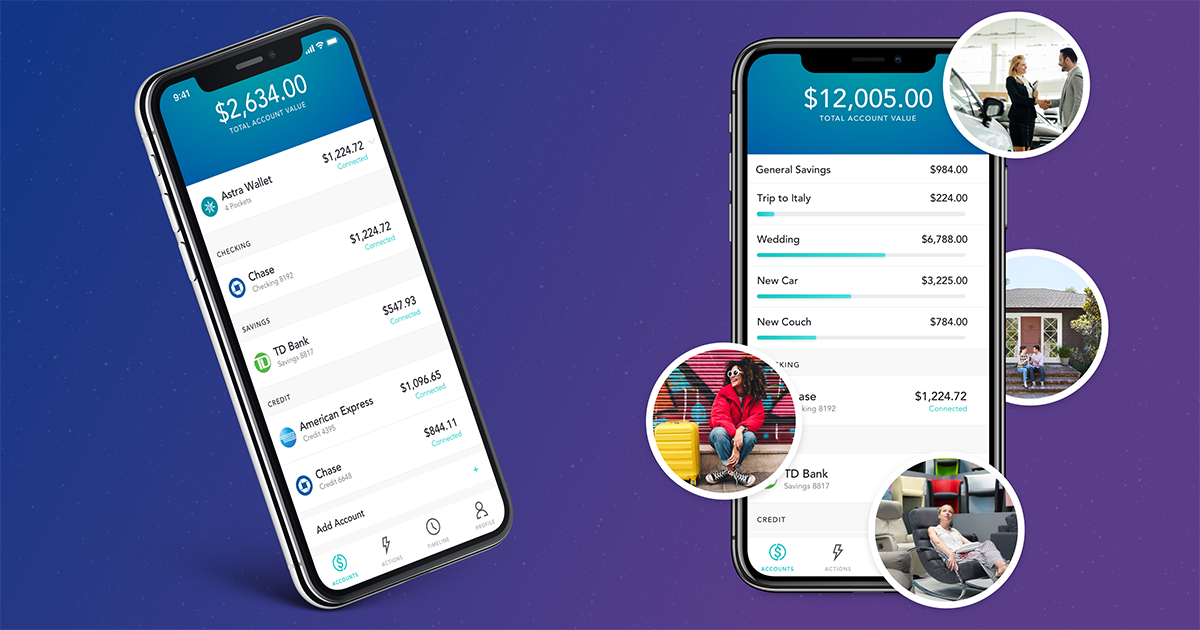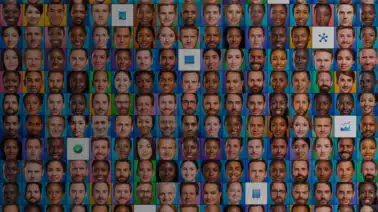Gil Akos knew the idea was a good one. He knew the product was something the world needed. But he didn’t have the skills yet to make it a reality. Four Nanodegree programs later, and Astra is live!

Gil Akos had an incredible idea for a new app. He wanted to empower individuals to make better decisions about their money through the power of technology. Gil believed that through smart financial modeling, based on deep learning, he could give people the power to make smarter moves with their money.
There was just one problem. Gil’s background was in architecture, not artificial intelligence. While his self-taught programming experience could get him so far, he lacked the skills to turn his app into reality. So Gil set out to master the skills and tools he needed. He found Udacity, and enrolled in the Machine Learning Engineer Nanodegree program. Now, two years later, his new iOS app—Astra—has officially launched, and Gil has graduated from four (and a half!) Nanodegree programs that he took to learn the skills he needed to bring his app idea to life.
We spoke to Gil to hear about his story.
Can you tell us about your background in architecture, and whether this informed your later interest in building apps?
I studied architecture undergraduate and graduate level at the University of Kansas. When I was studying, I got really interested in digital models and the technology that generated them. From that, I did a postgraduate degree at Columbia in Advanced Architectural Design, focusing on technology for designers. I really found my love for building digital things then—I learned five programming languages in my spare time in one semester! I just couldn’t get enough!
After college, you embraced this love for building digital things through working in architectural design, before starting your own company. That’s right, isn’t it?
I worked at a number of small design firms for a few years, before being laid off when the recession hit the industry in 2008. It was a shock, but I was still young and didn’t have too many commitments to worry about. I used it as an opportunity to change course on what I was doing. I still liked architecture, but I was increasingly interested in the digital side of my role. And I’d always had an entrepreneurial side—for example, at college, I used to sell used textbooks online to other students—so I decided to found my own company a friend, called Mode Lab. It’s a design technology consultancy, which does research and builds tools to generate and refine 3D models. Founding that company and building it up (it’s still going now!) taught me the importance of having perseverance and grit, and showed me how to manage the business dynamics of the day-to-day and the long term strategy. We were entirely bootstrapped, so were funded entirely by the cash we brought in each month by working on projects. It was exciting, but it meant revenue was VERY variable each month.
I understand that you enjoyed the experience of being an entrepreneur so much that you recently launched another business. Can you tell us about your new business, and where the idea came from?
The idea actually came from financial modeling that I’d been doing with Mode Lab, to try to manage our cash flow better. I was brainstorming with someone (who would ultimately become my new co-founder) about how empowering it would be if individuals had access to smarter financial intelligence. They’d be able to take charge of their own financial health, and make better, more personal choices about what they do with their money. What we came up with is “Astra”—an iOS app, powered by deep learning, that enables a user to manage their cash flow, and achieve their savings goals through automated bank transfers.
So far, it’s just me and my co-founder working full-time, along with a few long-term freelancers. It’s a big change from my first company in many ways—focusing on selling to consumers, not businesses; targeting finance rather than design. But it’s also a natural flow in some other ways—both involve putting virtual models to work, and both are all about using technology to optimize the performance of something.
Your vision for Astra clearly demanded understanding some very technical concepts and skills around AI and deep learning. Were these skills you already had when you started?
I knew I had this knowledge gap that I needed to fill—specifically around AI—in order to execute on the vision I had for Astra. I do have a technical background in aspects of programming, but it’s all essentially self-taught. I wanted the fastest, most efficient route to building my skills so that I could start using them to build our app as quickly as possible. And I wanted high-quality content and a learning experience that suited my learning style—one where I could learn something new, then go off and practice those skills in my own projects.
The technical challenges that we were facing at Astra became pretty involved. Without expanding my skill set, it felt like there was no way to build some momentum, make progress, and test anything. The minute I signed up with Udacity, I knew I’d found a way to set myself on a path where I could rely on my own skills to figure out how our ideas were actually going to come together.
“I could see there was a route to building my skills to a point where I could turn our ideas into reality. It’s why I dove right into the content at a million miles per hour!”
So you viewed your Nanodegree programs as a means to develop the skills you needed to launch your new business idea yourself?
Yes. It’s great to have an exciting concept, but I wanted the skills to actually make something, and then, subsequently, to connect with our users and get real data to learn about our AI models. It was just mind-blowing to be able to use my skills to turn my app idea into something real!
Now, our iOS app for Astra has just launched (and we are looking for early users to give us feedback!). That just plain and simple wouldn’t exist if I hadn’t done my Nanodegree programs. If I hadn’t, we would probably still be churning through, trying to figure out how to make it happen, instead of executing on the vision.
When you graduated your Nanodegree program you quickly enrolled in another. In fact, I now understand you’ve now completed four Nanodegree programs! Is that correct?
I’ve actually done four and a half Nanodegree programs. I did Machine Learning, Deep Learning, and Artificial Intelligence. Then I did React Developer, and got halfway through the Full Stack Nanodegree program before we got really busy working on Astra. I’ve mentioned my motivation for starting—to really understand AI and build practical AI skills—but what kept me coming back was that the content was really well-produced, and that made the learning experience more engaging. Then, the projects were a key bonus—they always worked to connect the knowledge and concepts you’d learned, with real-world applications.
“I think the fact that projects bridge the gap between the theory and the real-world gave me so much confidence to work on things outside the context of the Nanodegree program.”
Are there any examples that come to mind of where you directly applied what you learned in your Nanodegree programs to what you have been working on with your startup?
One that really sticks with me involves some of the core technology we were trying to build. I was developing the stock price predictor for my machine learning capstone project, which really allowed me to dig into the graphs and the forecasting of future balances. It’s something I’ve really been able to build upon in-depth in the context of the products we’re developing now at Astra—including developing a research roadmap we executed after the Nanodegree program finished. That’s really cool! I can see I had a definite progression from conceptual knowledge, to applied knowledge with limited skill, to being able to do something that’s adaptable for many use cases.
 You’ve been on quite a journey since starting work on Astra. If you could go back to the point when you were starting your first Nanodegree program, what advice would you give yourself?
You’ve been on quite a journey since starting work on Astra. If you could go back to the point when you were starting your first Nanodegree program, what advice would you give yourself?
I’d tell myself to remember that the hurdles you encounter—connecting between conceptual learning, and applied learning, and real-world applications—are an absolutely necessary part of the learning process. You really need to remember that fact when you get frustrated working on projects, because it’s also going to happen to you in real-life. Learning to navigate that challenge is as valuable as everything you learn on a conceptual level.
What practical advice would you give students just starting their own Nanodegree programs?
I’d suggest you give yourself some structure to how you want to tackle the Nanodegree program—plan your time, then stick to your plan. And fully invest in engaging with the Udacity community of students—it’s a great resource for tips and advice on getting through a challenging project, so get involved in the discussions.
I’d also say it’s important to accept that you’ll have spurts of productivity, and periods where challenges in your studies slow you down. In my experience, that’s really how development works in real life anyway!
Finally, as the founder of a company, you now have responsibility for finding talent to work in your business. What are you looking for in recruits, and how can applicants impress you?
As a Udacity graduate myself, I can confidently say that Udacity graduates are already self-motivated, perpetual learners—which is highly valuable for any startup. Beyond that, I’d be looking for optimism, grit, and an eagerness to get involved and take on challenges. If “I’ve got this!” is your mantra, you’re likely to do well! If we’re interviewing candidates, I want to see things you’ve done—a prototype you’ve built, or an article you’ve written, or an open-source contribution you’ve worked on where you can explain its relevance to what we do as a company.
–
Thanks for some really great insights Gil! It’s great to hear how you didn’t let the small matter of a lack of AI skills get in the way of pursuing your startup dream! Your tenacity and drive to build the skills you needed to create your finished app is truly inspiring, and we’re really looking forward to hearing how Astra progresses, and seeing what you come up with next!



